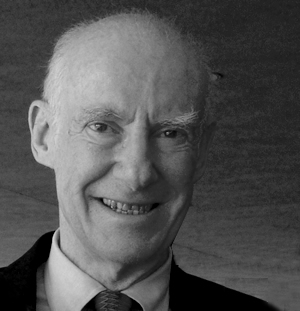A Quote by Wendy Kopp
People are attracted to teaching because they want to make a real impact. The teachers who are making the greatest difference go far beyond meeting standardised test measures. They aspire to truly level the playing field for their students, which means inspiring a love of learning, fostering the highest levels of critical thinking, building perseverance in working towards academic excellence, and so on.
Quote Topics
Academic
Academic Excellence
Aspire
Attracted
Because
Beyond
Building
Critical
Critical Thinking
Difference
Excellence
Far
Field
Fostering
Go
Greatest
Highest
Highest Level
Impact
Inspiring
Learning
Level
Levels
Love
Love Of Learning
Make
Making
Means
Measures
Meeting
People
Perseverance
Playing
Playing Field
Real
Students
Teachers
Teaching
Test
Thinking
Towards
Truly
Want
Which
Working
Related Quotes
I think [testing] has had a profoundly problematic impact on student learning. It must seem to students that their worth as individuals is equivalent to their test score. The stress the high stakes culture has on teachers is also highly negative and must surely impact students in a negative way. It also de-professionalizes teachers because it encourages them to be script readers, followers of rigid schedules, and to disregard the needs of the people they teach in favor of the scripts and schedules.
But more classrooms and more teachers are not enough. We must seek an educational system which grows in excellence as it grows in size. This means better training for our teachers. It means preparing youth to enjoy their hours of leisure as well as their hours of labor. It means exploring new techniques of teaching, to find new ways to stimulate the love of learning and the capacity for creation.
Differentiated Instruction is a teaching philosophy based on the premise that teachers should adapt instruction to student differences. Rather than marching students through the curriculum lockstep, teachers should modify their instruction to meet students' varying readiness levels, learning preferences, and interests. Therefore, the teacher proactively plans a variety of ways to 'get it' and express learning.
We have to have a shared prosperity. We have to make that our job number one. People want a better economic playing field for working Americans. And they're voting for it. Our job is to make sure that people know that the Democratic party is the party that is going to deliver that for them. And that means strengthening the grassroots. That means strengthening the local precinct county level and making sure that we're all channeled on massive turnout for that program.
In education, I'm going to try to find what works. One thing I want to do is improve the quality of teachers. There are a lot of people who want to go into teaching; it's fundamentally a very fulfilling profession. But people don't feel they have financial support. We pay starting teachers in particular too little to attract the quality people that we need. I want to make it easier for good people who want to go into teaching to do that.
Standardised tests cannot capture all, but on the other hand, students who are not capable of doing well on standardised tests are not well-equipped to thrive in today's world and so it's important for teachers to ensure that students gain the foundation necessary to meet the baseline educational standards these tests represent.
I am relieved that, in my own teaching, I don't have to moderate between high stake teaching and education for the virtues. If I did, I would give students the tools to take the tests but not spend an inordinate amount of time on test prep nor on 'teaching to the test.' If the students, or their parents, want drill in testing, they'd have to go elsewhere. As a professional, my most important obligation is to teach the topic, skills, and methods in ways that I feel are intellectually legitimate.
It says anybody can make it, because we're all on a level playing field. But we're not on a level playing field. That 's precisely the point, and that's what the rich don't want to look at. They don't want to recognize that they're not producing wealth at all. They're hoarding wealth. That's different.
The limitations of federal laws are able to create real progress at the local level. Ultimately, to effect not just incremental progress but progress that is transformational for students, we need committed leadership - people who believe deeply that their students can achieve at the highest levels and who know how to create the conditions at the classroom, school and system level to give them the opportunities they deserve.
Teaching is a huge part of what I do. I love to think about what I do out loud, and the best way to do this is to teach. I usually learn a lot from the students in my workshops, because we work to build the classes around a collaborative environment where everyone is working towards the same goal of learning how to observe and see the subject well, because everyone brings different approaches and experiences with them, the other students and myself learn new methods that we can add into what we do.
I have not seen that standardised tests make the profession less attractive, though some principals respond to them in a way that drives the best teachers out of their schools (by over-emphasising test prep in the school curriculum for example). On the other hand, great teachers want benchmarks to measure progress and tests can help with that.
The production of knowledge in schools today is instrumental, wedded to objective outcomes, privatized, and is largely geared to produce consuming subjects. The organizational structures that make such knowledge possible enact serious costs on any viable notion of critical education and critical pedagogy. Teachers are deskilled, largely reduced to teaching for the test, business culture organizes the governance structures of schooling, knowledge is viewed as a commodity, and students are treated reductively as both consumers and workers.
Making art now means working in the face of uncertainty; it means living with doubt and contradiction, doing something no one much cares whether you do, and for which there may be neither an audience nor reward. Making the work you want to make means setting aside these doubts so that you may see clearly what you have done, and thereby see where to go next. Making the work you want to make means finding nourishment within the work itself.






























